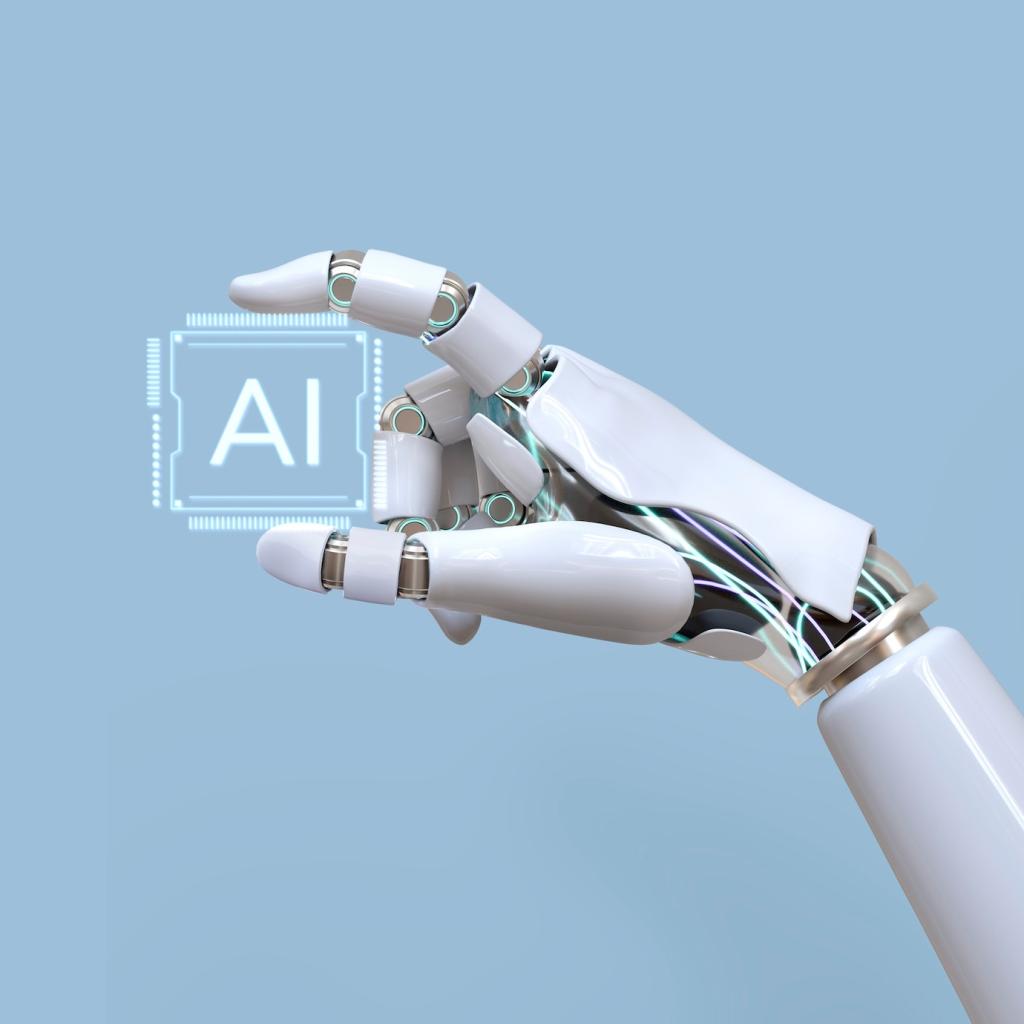Revolutionizing Customer Engagement with AI-powered Marketing
AI-powered marketing is transforming the way brands interact with customers, offering unprecedented levels of personalization, efficiency, and intelligence. By harnessing advanced machine learning algorithms and data analytics, businesses can now create more meaningful connections that drive loyalty, increase revenue, and adapt dynamically to ever-changing customer needs. This revolution in customer engagement is setting new standards for marketing effectiveness in the digital age.
The Evolution of Customer Engagement
Personalized Communication
Personalized communication is the cornerstone of modern marketing. Using AI, brands can analyze data from multiple touchpoints to understand unique customer preferences and behaviors, ensuring each interaction is tailored to the individual. This enhances the recipient’s experience, making them feel valued and understood, which encourages stronger relationships and greater brand loyalty. AI-driven personalization goes far beyond using a customer’s name in an email; it encompasses recommendations, content curation, and timing, resulting in communications that feel naturally integrated into each customer’s journey. By dynamically adjusting messaging based on evolving behavior and feedback, AI ensures continual relevancy and greater engagement over time.
Predictive Analytics
Predictive analytics empowers businesses to anticipate customer needs before they even arise. By leveraging vast amounts of data, machine learning algorithms identify patterns and predict future behaviors, such as purchasing decisions or churn risk. These insights allow marketers to proactively address opportunities and challenges, tailoring offers or interventions precisely when they’re needed most. With AI, predictive analytics become more accurate and actionable, enabling entirely new strategies for customer retention, up-selling, and cross-selling, ultimately maximizing the value of each relationship.
Real-time Interaction
AI enables brands to connect with customers in real time across multiple channels, such as chatbots on websites, automated responses in messaging apps, and dynamic content on social media. This immediacy satisfies modern consumers’ expectations for instant support and seamless experiences. Real-time interaction not only resolves customer inquiries efficiently but also provides valuable data for continuous improvement. AI’s ability to learn from every exchange ensures that future interactions become increasingly intuitive and helpful, paving the way for lasting customer satisfaction.
AI-driven Personalization Strategies
Dynamic content customization is a powerful application of AI that allows brands to automatically adapt web pages, emails, and advertisements for each visitor. Rather than showing static, one-size-fits-all materials, AI analyzes an individual’s past behaviors, preferences, and current context to deliver content that is relevant and compelling. This real-time adjustment keeps users engaged and significantly increases the likelihood of conversions, as each touchpoint is crafted to speak directly to the customer’s unique interests. Businesses embracing dynamic content customization see higher satisfaction rates, stronger loyalty, and improved ROI from their marketing efforts.

Transforming Customer Insights with AI
AI-driven sentiment analysis helps brands comprehend customer emotions at scale by evaluating written and spoken feedback from social media, reviews, and customer support interactions. By interpreting subtle cues in language and tone, AI identifies positive, negative, or neutral sentiments, providing a clear picture of public perception. Marketers can use these insights to address pain points swiftly, celebrate successes, and proactively shape messaging that resonates with current sentiment trends, ensuring all communications land appropriately with their audience.
Traditional segmentation based on demographics or simple behaviors is limited in its ability to capture the true complexity of customers’ preferences. AI powers much richer segmentation using hundreds of variables—from past purchases and browsing habits to social media interactions and even real-time context. This granular segmentation allows marketers to design campaigns that are highly specific to each group’s needs, resulting in more effective outreach, higher response rates, and increased customer satisfaction.
Understanding how customers behave over time is crucial for engagement. AI excels at recognizing behavioral patterns that would be invisible to manual analysis, such as identifying when a customer is likely to churn or become a loyal advocate. By acting on these patterns, marketers can tailor interventions, reward programs, and content that influence desired behaviors. This ability to recognize and respond to behavioral trends in real time is driving a new era of proactive, data-first marketing.

Automating Customer Journeys for Maximum Impact
01
AI automates complex marketing workflows, freeing teams from repetitive manual processes. From trigger-based email campaigns to personalized push notifications, AI tools orchestrate every step of the customer journey with precision. This automation ensures that customers receive the right messages at the right time, without delay or error. By offloading routine tasks to AI, marketers can focus on strategy and creativity, improving overall campaign quality and results.
02
AI makes it possible to react immediately to customer actions or events, triggering highly targeted communications that feel genuine and timely. For example, if a user abandons a shopping cart or engages with a specific product, AI can automatically send reminders, offers, or helpful content. These automated triggers create a more responsive and persuasive marketing approach, increasing conversion rates and nurturing long-lasting relationships without intrusive manual intervention.
03
AI-driven analytics continuously monitor customer journeys, identifying friction points and opportunities for improvement. By analyzing outcomes and behaviors in real time, AI adapts journeys on the fly, personalizing next steps and content to maximize engagement and satisfaction. This ongoing optimization process ensures that the journey evolves alongside the customer, reflecting their changing needs and driving better business outcomes.

Previous slide
Next slide
Increasing ROI with Intelligent Campaign Management
Budget Optimization and Allocation
AI-driven tools analyze historical performance, market trends, and real-time data to recommend optimal budget allocations across channels, audiences, and tactics. This precision ensures that resources are spent where they are most likely to generate returns, reducing waste and maximizing impact. As market dynamics shift, AI can continually reassess and reallocate budgets, keeping campaigns agile and results-oriented in the face of change.

Future-proofing Marketing with AI Innovation
Agile Experimentation and Testing
AI dramatically accelerates the pace of marketing experimentation, from A/B testing new creatives to trialing entirely novel strategies. By automating the testing process and quickly analyzing results, AI helps marketers identify what works (and what doesn’t) with unprecedented speed and confidence. This agility fosters a culture of continuous improvement, ensuring brands remain innovative and responsive in a competitive marketplace.
Seamless Technology Integration
Adopting new marketing technologies can be challenging, but AI excels at integrating data and systems across platforms. Through intelligent APIs and connectivity tools, AI ensures all marketing tools—from CRM systems to ad buying platforms—work together harmoniously. This seamless integration makes it easier to roll out new technologies, experiment with emerging channels, and deliver unified, data-driven experiences for both marketers and customers.
Anticipating Emerging Trends
AI’s capacity for rapidly analyzing vast amounts of data makes it an invaluable ally for predicting and capitalizing on emerging trends. By identifying new patterns in customer behavior or market dynamics before they become mainstream, AI empowers brands to be first movers. This foresight not only enhances marketing strategies but also helps companies innovate products, services, and campaigns that resonate with the evolving expectations of modern consumers.
